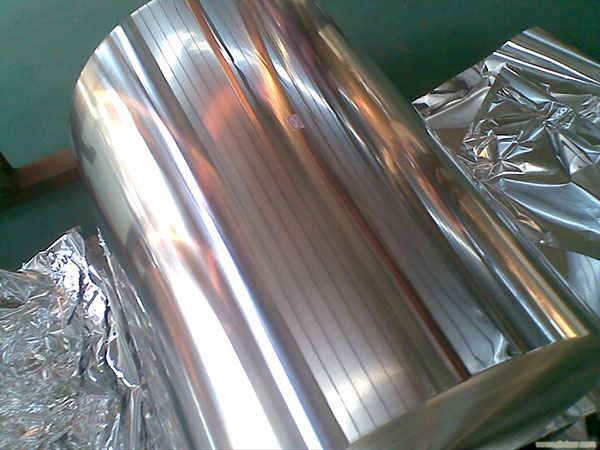- 0531-87887788

來(lái)源:http://www.kangyanghua.com/ 發(fā)布時(shí)間:2024-01-22
鋁板的基本上狀態(tài)可分成F、O、H、T、W,這五種狀態(tài)代表了鋁板的五種工藝處理和環(huán)節(jié),不一樣狀態(tài)的鋁板性能和價(jià)位也會(huì)有非常大差別。
The basic states of aluminum plates can be divided into F, O, H, T, and W. These five states represent the five process treatments and links of aluminum plates, and the performance and price of aluminum plates in different states will also vary greatly.
鋁板5種基本上淬火狀態(tài)-F、O、H、T、
Five basic quenching states of aluminum plate - F, O, H, T
鋁板5種基本上淬火狀態(tài)-F、O、H、T、
Five basic quenching states of aluminum plate - F, O, H, T
態(tài)鋁板
State aluminum plate
狀態(tài)又被稱(chēng)為隨意生產(chǎn)加工狀態(tài),F(xiàn)態(tài)鋁板的機(jī)械設(shè)備有機(jī)化學(xué)性能并沒(méi)有明文規(guī)定,購(gòu)置F狀態(tài)鋁板的顧客一般對(duì)鋁板的性能有特別要求。購(gòu)置后,她們將開(kāi)展需要的生產(chǎn)加工、硬底化和熱處理工藝,以獲取所需要的結(jié)構(gòu)力學(xué)和有機(jī)化學(xué)性能。

The state is also known as the state of arbitrary production and processing. The organic chemical properties of mechanical equipment for F-state aluminum plates are not explicitly specified, and customers who purchase F-state aluminum plates generally have special requirements for the performance of the aluminum plates. After purchase, they will carry out the necessary production processing, hardening and heat treatment processes to obtain the required structural mechanics and organic chemical properties.
態(tài)鋁板
State aluminum plate
狀態(tài)又被稱(chēng)為大部分淬火狀態(tài),O并沒(méi)有細(xì)分化狀態(tài),就是指僅有大部分淬火才可以得到zui少抗壓強(qiáng)度的鋁板商品。
The state is also known as the majority quenching state, and O does not have a finely differentiated state, which means that only the majority quenching can obtain aluminum plate products with low compressive strength.
態(tài)鋁板
State aluminum plate
狀態(tài)又被稱(chēng)為冷作硬化狀態(tài),代表加工硬化后抗壓強(qiáng)度提升的鋁板。H狀態(tài)有很多細(xì)分化狀態(tài),如H18態(tài),1和8,di一個(gè)數(shù)據(jù)代表工藝處理:1是冷作硬化,2是生產(chǎn)后不大部分淬火,3是生產(chǎn)后超低溫淬火;第二個(gè)數(shù)據(jù)代表強(qiáng)度:1-8,1,8。
The state, also known as cold work hardening state, represents the aluminum plate with improved compressive strength after work hardening. There are many finely differentiated states in the H state, such as H18 state, 1 and 8, where di represents process processing: 1) cold work hardening, 2) minimal quenching after production, and 3) ultra-low temperature quenching after production; The second data represents intensity: 1-8, 1, 8.
態(tài)鋁板
State aluminum plate
狀態(tài)就是指鋁板的熱處理工藝狀態(tài),表明鋁板冷作硬化后平穩(wěn)。T狀態(tài)有細(xì)分化狀態(tài),代表不一樣的工藝處理,狀態(tài)從T0一直到T10。T態(tài)中,Tx51代表清除熱應(yīng)力,如T6狀態(tài),清除熱應(yīng)力后,表明為T(mén)651。
The state refers to the heat treatment process state of the aluminum plate, indicating that the aluminum plate is stable after cold work hardening. The T state has a finely differentiated state, representing different process treatments, from T0 to T10. In the T-state, Tx51 represents the removal of thermal stress. For example, in the T6 state, after the removal of thermal stress, it indicates T651.
態(tài)鋁板
State aluminum plate
狀態(tài)就是指熱處理回火熱處理工藝狀態(tài),W狀態(tài)不穩(wěn)定,表明鋁板熱處理回火后處在常溫下的當(dāng)然時(shí)效性,W狀態(tài)只代表著鋁板處在當(dāng)然時(shí)效性環(huán)節(jié)。
The state refers to the state of the heat treatment and tempering process. The unstable W state indicates that the aluminum plate is in the natural aging stage at room temperature after heat treatment and tempering. The W state only represents that the aluminum plate is in the natural aging stage.
本文由鋁板生產(chǎn)廠家提供技術(shù)支持,更多的詳細(xì)精彩內(nèi)容請(qǐng)點(diǎn)擊我們的網(wǎng)站http://www.kangyanghua.com我們將會(huì)全心全意為您提供滿意的服務(wù)。
This article is supported by aluminum plate manufacturers. For more detailed and exciting content, please click on our website http://www.kangyanghua.com We will wholeheartedly provide you with satisfactory service.